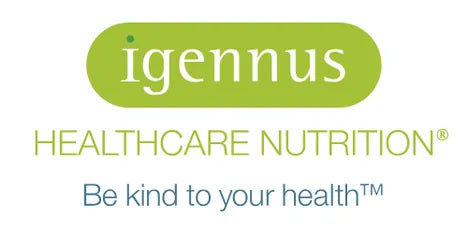Welcome to the Igennus latest feature ‘Products we love’. Here, we’ll be sharing with you our favourite products in different categories, explaining why our staff love them, and rating them out of 5. Feel free to leave comments if you have your own favourite products that you love and would like to share them with us.
It’s that dreaded time of year, the clocks have gone back an hour leaving us waking up in darkness and leaving work in darkness. But it’s also a great time of year, with autumnal festivities including Halloween and Bonfire night, and dare I say it, Christmas and New Year are around the corner. And yet, as a nation, we still dread the small change and yearn for the time that the nights and mornings start getting brighter again. There can be many reasons for this; firstly, lack of sunlight means less vitamin D production in the body, the wonder vitamin that keeps our immune system healthy. Are we subconsciously aware that we’re more likely to get ill? Secondly, seasonal affective disorder (SAD) hits. If you’re not aware of SAD, it is a seasonal condition that tends to start in Autumn, with sufferers reporting lower mood. Whilst the exact cause is unknown, it is believed to be linked to the lack of light exposure affecting the body’s ability to produce melatonin (the sleep hormone) effectively. So to help you turn around your winter blues, we’ve put together our top 5 products and tips to help increase light exposure and overcome SAD.
Lumie Vitamin L
For those who suffer with SAD, this light from Lumie provides a simple way to increase exposure to bright lights throughout the day. The portable device only requires 30 minutes of ‘treatment’ time and may be the answer to your dark mornings if you struggle to find the energy to get up. Simply pop it next to your bed and flick it on when your alarm goes off. This should help to lower melatonin levels in response to the light, making you feel a lot more refreshed. Alternatively, if you work in a dimly lit office or a work space with no natural sunlight exposure, try popping this on your desk for some light throughout your working day.
Pure & Essential Daily Vitamin D3 2000IU
If you do find that you have more get up and go, and a more positive outlook during the summer months than the winter months, you may be happy to hear that supplementing with vitamin D has been found to be effective in improving these symptoms which are associated with SAD. Whilst we would normally produce vitamin D from sun exposure, our ability to do this is greatly diminished during the winter months (both because of a reduction in sunlight hours and a reluctance to get outside so much) so a supplement is definitely a good idea. Pure & Essential Daily Vitamin D3 provides an optimal dosage amount in a small 1-a-day capsule, and every bottle contains a full year’s supply, not bad for £11.99.
Get outside
With limited sun exposure, we try and fit in as much daylight as we can, whilst we can. The blinds are open and we’re often found taking a walk on our lunch break to the local supermarket or heading to the local country park. Granted, not everyone has a country park on the doorstep of the office, but if you have a spare ten minutes, even a walk around the perimeter of your office building/workplace should give you enough fresh air to leave you feeling revitalised when you return to the office. Days off – plan some outdoor activities, taking the kids to the park, taking the dog for a walk along a nature trail, or go and explore a local village, the perfect excuse to cosy up to an open fire in a local pub afterwards.
Turn your night lights on
If you’re a smart phone user now is the time to start exploring the features of your smart phone such as ‘night shift’. This feature in the iPhone means that we can reduce our late night exposure to artificial lights, which is all well and good as long as we don’t have other artificial lights coming from the television and other light sources. If, however, you do check your social media pages, read ebooks or catch up with your friends whilst in bed, this is a great trick to reduce the risk of artificial lights hindering your ability to increase melatonin levels and induce sleep.
Sleep masks
They’re not just good for overnight flights, these beauties are an absolute saviour if you have a partner that likes to read late into the night, if you’re disturbed by the hall light going on or if you have a particularly bright light in the street and the blinds just don’t quite block it out. Again, this is all linked to light exposure and our melatonin production, so the more we can lower the light exposure during the night, the higher we can keep our melatonin levels and induce sleep. If you find that you are waking in the night and feel that you are sensitive to light, you should definitely try a sleep mask to see if it works for you.
So there we have it, our top 5 tips for dealing with darker morning and evenings. What are your tried and tested tips? We’ve decided that if all else fails, some winter sun ought to help!








